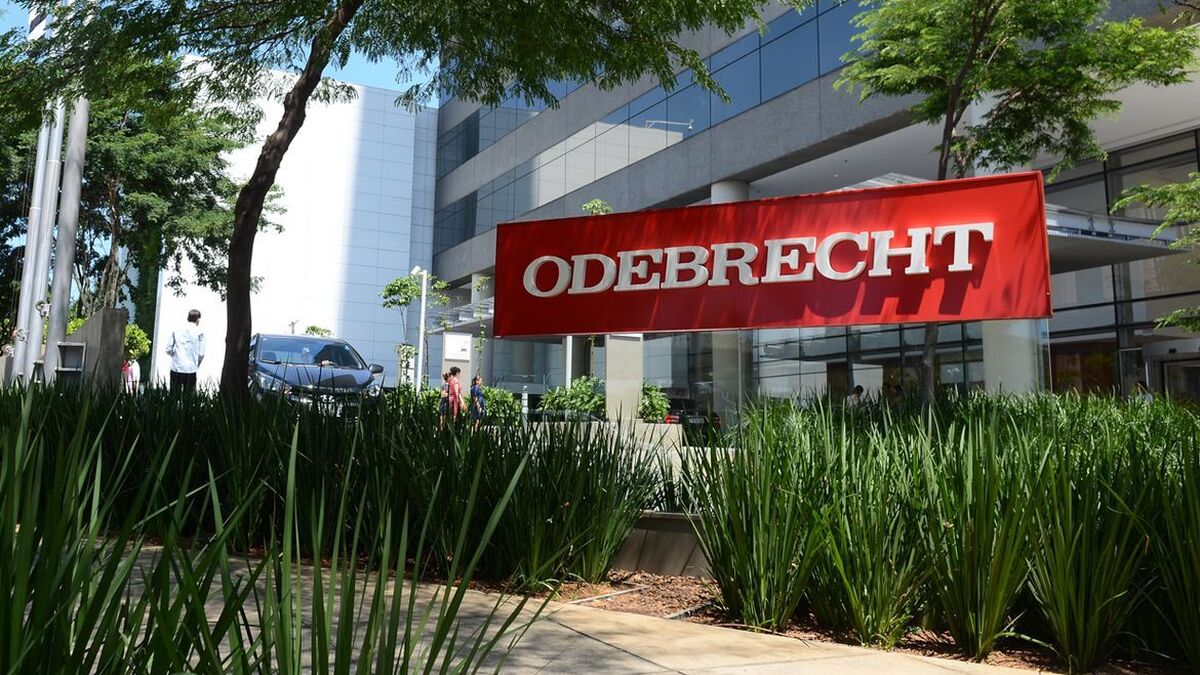Three Martinelli era Ministers face corruption trial

Among the list of 50 people called to trial for alleged money laundering and corruption of public servants are three former ministers of the Ricardo Martinelli administration (2009-2014).
They are Frank De Lima, Economy and Finance , Demetrio Jimmy Papadimitriu, Presidency, and Jaime Ford, Public Works.
De Lima, who was Vice Minister of Economy between July 2009 and September 2011, and then Minister of between October 2011 and June 2014, would have received money in accounts in Andorra, through frontmen using cash and cashier’s checks, funds that were supposedly delivered to De Lima who gave expedited passage to Odebrecht’s collection efforts and arranged the items of the general budget of the Nation to pay the bills that the government owed the company.
In a report from the Crimes Against Public Administration Division, it is explained that De Lima received $7 million from companies linked to Odebrecht through José Luis Saiz Villanueva,. who told the Public Ministry that between 2012 and 2013, De Lima asked him to receive “payments.” from André Rabello, who at that time was the superintendent of Odebrecht in Panama.
Jimmy Papadimitriu, would have accepted money from companies linked to Odebrecht, during the period in which he served as an official, actions that, according to the MP, are framed in a “bribery improper liability ”. It alleges that acting in accordance with his public function, Papadimitriu received money from Box 2 of Odebrecht in accounts in Andorra that were in the name of his parents.
The file contains documents provided by the Andorran judicial authorities, including emails that reflect the banking procedures carried out by Diamantis Papadimitriu, and María Bagatelas, parents of the former minister, to open the accounts where they will receive the money. Between 2009 and 2012, Papadimitriu would have received $ .9 million in accounts in the name of María Bagatelas, his mother.
Jaime Ford, , according to the Public Ministry, also would have used his position as legal representative of the Ministry of Public Works to carry out actions incompatible with the position.
Ford, at the time of being investigated, told the prosecution that he made a networking or contact network so that his friend Jorge Espino could have a rapprochement with Rabello.
Rabello told the prosecution that in 2012, after Ford took office as minister, he introduced Espino to talk about a hydroelectric plant that they wanted to develop, for which they requested $4 million.
Rabello made it clear that he was not interested in the business, but his interest was to maintain a relationship with Ford because Odebrecht had large contracts: the coastal strip three, historical heritage, and the Santiago-Viguí highway, for which he gave an “advance” of $1.8 million in an account in Andorra, the details of which were provided by Espino.
Collaboration deals
Much of the case is based on the 18 effective collaboration agreements, and punishment with former executives of the construction company, front men, partners of some of those investigated, and relatives of former officials who received the bribes. After the Prosecutor’s Office and the accused consolidated the pact, and it was approved by a judge, convictions, fines, and the return of money were achieved.
Four were the Odebrecht people who reached agreements with the Prosecutor’s Office. Rabello, director of Odebrecht in Panama, gave information on the mechanism used to obtain contacts with officials, to determine the amounts to be paid, and, in exchange, obtain privileges in the development of the works.
Fernando Migliaccio Da Silva, treasurer of the Odebrecht Structured Operations Department, detailed how that office worked, which gave clues to the Prosecutor’s Office to identify the accused and the crimes. Olivio Rodrigues Junior, in charge of making the illegal payments, provided information on the accounts that were under his control and clarified the route used for bribes. Luiz Eduardo Da Rocha Soare, the operator of the Structured Operations Department, explained how, the payment system he used, worked.
Gabriel Alvarado was a frontman for the Martinelli Linares brothers, through Mengil International. José ‘Luis Saiz was De Lima’s front man. He promised to return $750,000 and was sentenced to 47 months in prison. Olmedo Méndez Tribaldo, also a De Lima frontman, was sentenced to 46 months in jail. Jorge Espino was Jaime Ford’s frontman and received a 42-month prison sentence and a $1million fine.
s Mozes, Danna Harrick’s frontman, provided information about the funds that this former official received in Andorra. He was sentenced to 42 months in jail and returned $1.7 million.
Ramón Carretero was the front man for Riccardo Francolini, and Aurora Mudaras. He returned $1 million. Timothy Scorah was a front man for Odebrecht and agreed to be the signer of the construction company’s accounts. He was sentenced to 48 months in jail. Humberto De León, Credicorp Bank executive, opened accounts with Odebrecht companies. He made $1.9 million available to the Treasury. and was sentenced to 60 months in prison.
Amado Barahona Tapia, Credicorp Bank’s compliance officer, signed an effective collaboration agreement excluding charges, as the information he gave prompted the bribery investigations.
Raúl De Saint Malo, a partner of the Martinelli Linares brothers, gave information on the purchase of the oil tankers. He returned two ships, $1.9 million, and was sentenced to 60 months in prison.
Mauricio Cort, lawyer for the Martinelli Linares and Federico Suárez, provided information on the payments received in Andorra. He returned $1.6 million and received a 48-month prison sentence.
Daysie Villarreal, wife of Carlos Ho, a former official of the Ministry of Public Works, returned goods and received a 34-month prison sentence. While Carlos Ho accepted having received bribes and provided information on the overpriced projects. He was sentenced to 72 months in prison.





